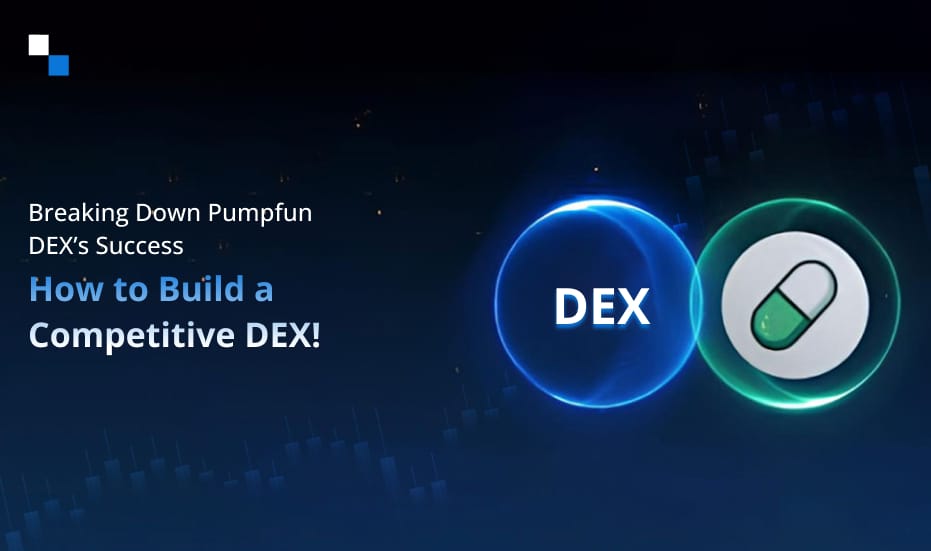
Real-Life Use Cases of NFT Marketplace
May 8, 2023
The Role of DeFi Staking in the Decentralized Finance Ecosystem
May 8, 2023Cryptocurrency trading has become increasingly popular in the past few years. Besides the subsequent rise in trading, you must have heard of blockchain technology, there are now two main types of exchanges: centralized exchanges (CEXs) and decentralized exchanges software (DEXs). While both types of exchanges have their advantages and disadvantages, it can be challenging for traders, especially beginners, to decide which one is right for them.
In this article, we will explore the differences between CEXs and DEXs, and provide insights to help you make an informed decision about which one is best suited for your trading needs. Thus, whether you are a seasoned trader or just starting out in the world of cryptocurrency, read on to find out which exchange is right for you!
What are Centralized Exchanges (CEXs)?
Centralized exchanges, as the name says, are run by a centralized organization that controls the exchange’s operations. They are usually owned and operated by a company or a group of individuals, who are responsible for maintaining the exchange’s infrastructure, handling customer support, and ensuring compliance with regulatory requirements.
Let’s hop into the advantages and disadvantages of CEXs
Pros-
- Higher Liquidity: CEXs generally have higher trading volumes than DEXs, which means that there is more liquidity available, and buyers and sellers can execute trades more quickly and efficiently.
- Easy to Use: CEXs are typically more user-friendly than DEXs and are designed to be accessible to a wider range of users, including those who are new to cryptocurrency trading.
- Customer Support: CEXs usually offer customer support services, which can be helpful if you encounter any issues while trading.
Cons-
- Centralized Control: CEXs are managed by a centralized authority, which means there is a single point of failure. Users may lose their funds if the exchange is hacked or suffers technical issues.
- Security Risks: CEXs are often targeted by hackers, as any hacker can easily have access to a user’s personal data and bank account details due to KYC (know your customer) registration, and there have been many high-profile security breaches in the past that have resulted in the loss of millions of dollars worth of cryptocurrency.
In September 2020, the KuCoin centralized crypto exchange was targeted, and the thieves stole about $280 million in coins and tokens.
- Compliance: CEXs are subject to regulatory requirements, which can make it difficult for them to operate in certain jurisdictions. This can limit the number of trading pairs and currencies available on the exchange.

What are Decentralized Exchanges (DEXs)?
DEXs, on the other hand, are built on a blockchain network and are a component of the developing suite of Decentralized finance exchanges, without any centralized authority. They are usually governed by a set of smart contracts that determine how the exchange operates.
Advantages of DEXs
Pros-
- Decentralized Control: Decentralized crypto exchange software is not controlled by any centralized authority, which means that there is no single point of failure. This makes them more resistant to hacking and other security breaches.
- Anonymity: DEXs do not require users to provide personal information, which means that users can trade cryptocurrencies anonymously.
- Transparency: Transactions on DEXs are transparent and can be viewed on the blockchain, which means that users can verify that their trades are being executed correctly.
- Keeping market manipulation at bay: Decentralized exchange software reduces market manipulation by enabling peer-to-peer cryptocurrency exchange, protecting customers against false trading and wash trading.
- Reduced transaction fees: Decentralized exchanges remove the need for middlemen, resulting in lower overall transaction costs. Most DEXs are now based on Ethereum, which can result in hefty gas fees at times.
- Asset Self-Custody: Not your keys, not your crypto, is the general rule in decentralized finance exchange. DEXs are non-custodial and conform to this idea, allowing users to exercise self-custody. In a nutshell, DEX users retain control over their private keys and thus true ownership of their assets.
Which One is Right for You?
The decision of whether to use a centralized exchange or a decentralized finance exchange ultimately comes down to your individual needs and preferences. We know this wasn’t the expected answer for you, but when it comes to the value of ease of use, customer support, and high liquidity, a CEX may be the best option for you. If you prioritize security, anonymity, and transparency, a DEX may be a better fit.
It’s worth noting that many cryptocurrency traders use both CEXs and DEXs. Ultimately, the choice between CEXs and DEXs depends on the user’s preferences and priorities. Take some time and note every nuance of both the exchange and the company, and when you are certain, contact Antier, the best decentralized exchange software development company, and leave the rest to us.



